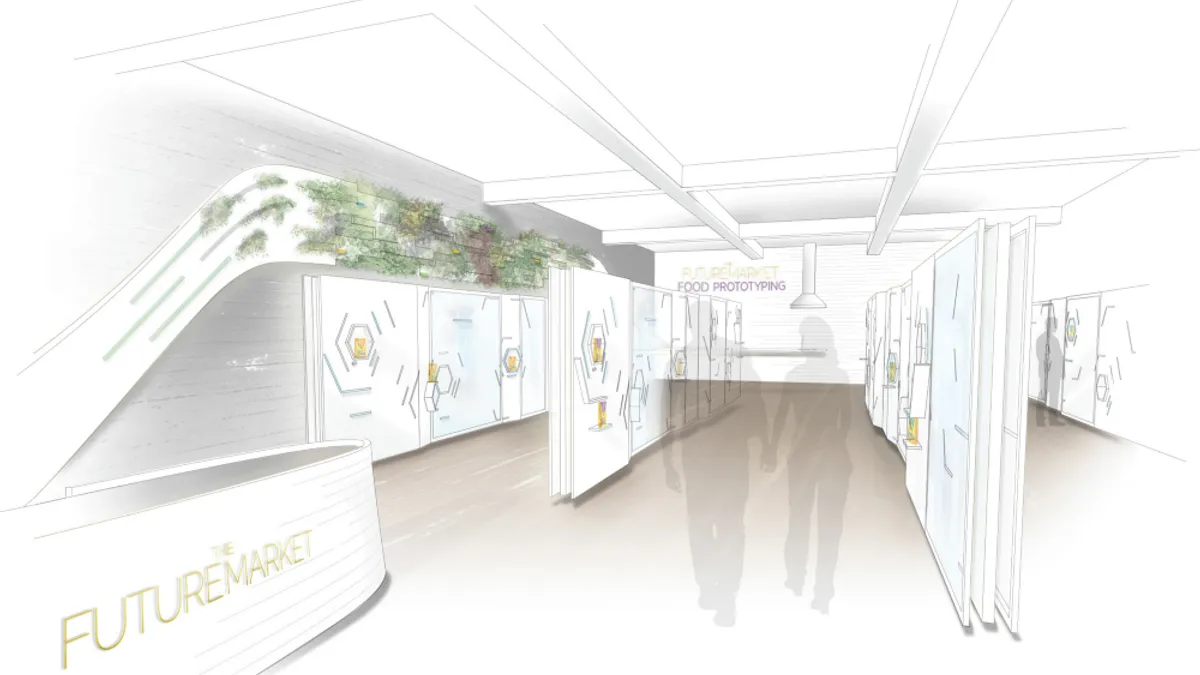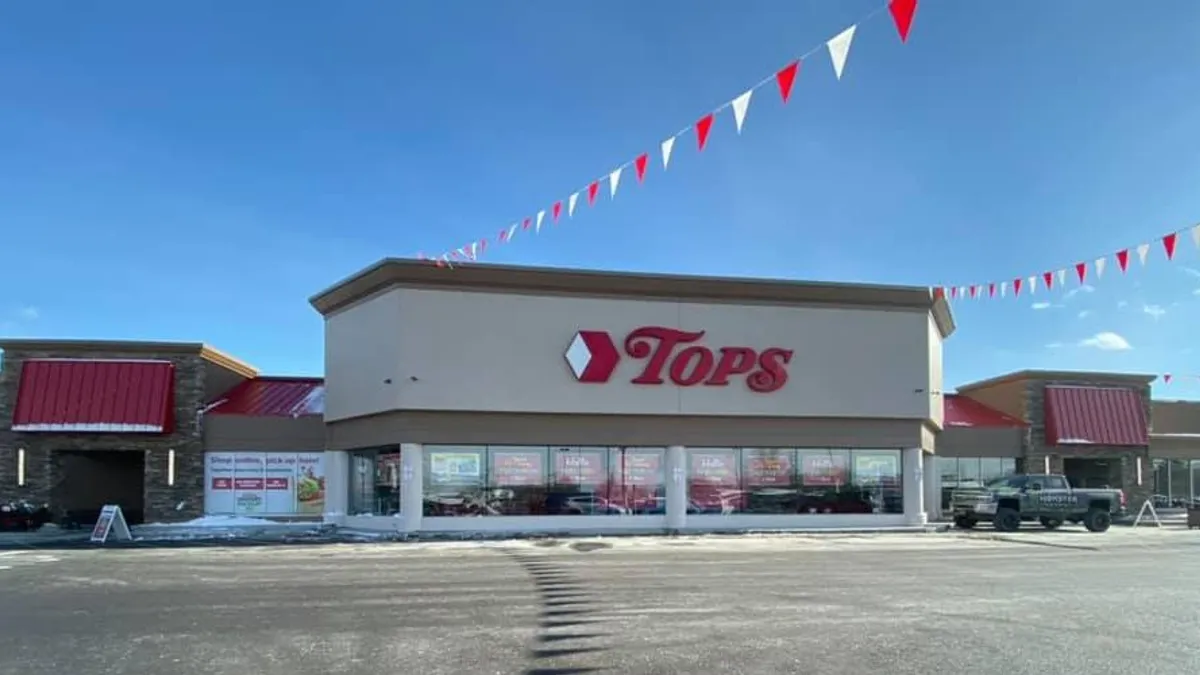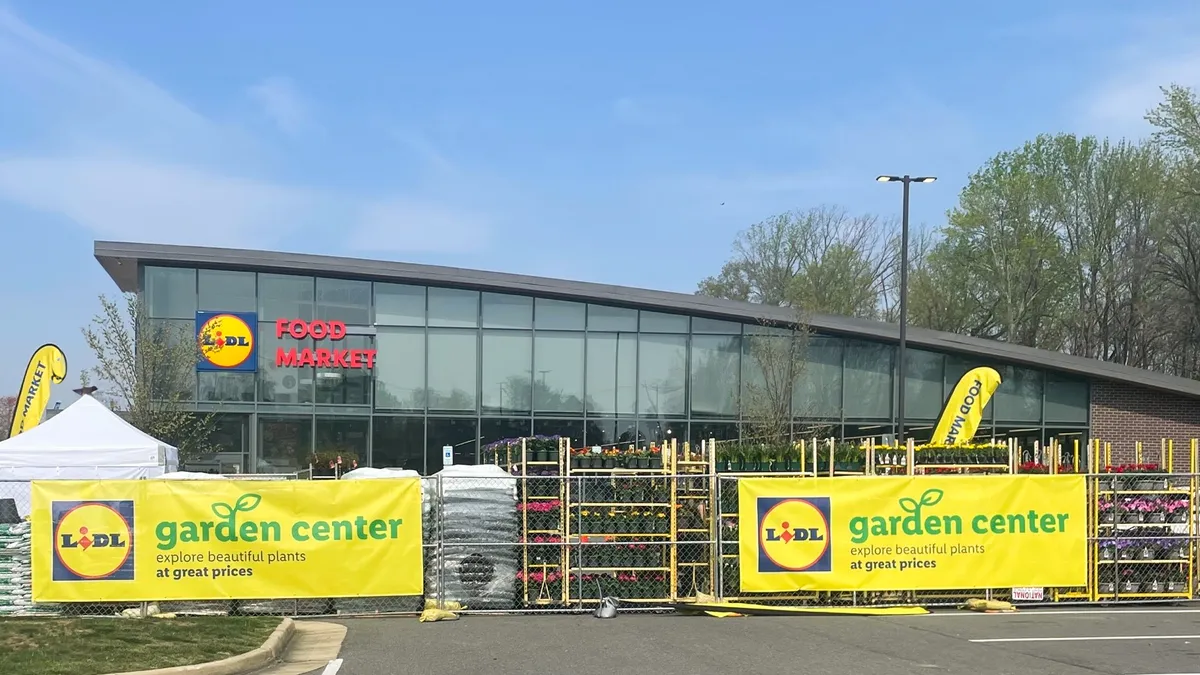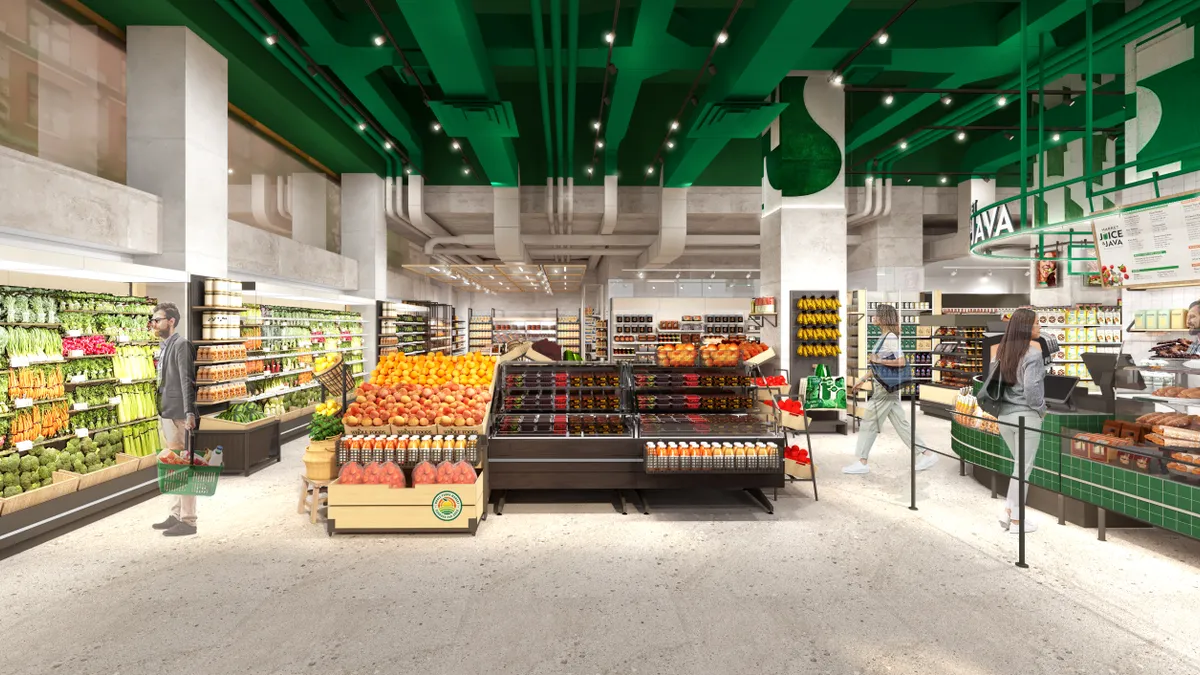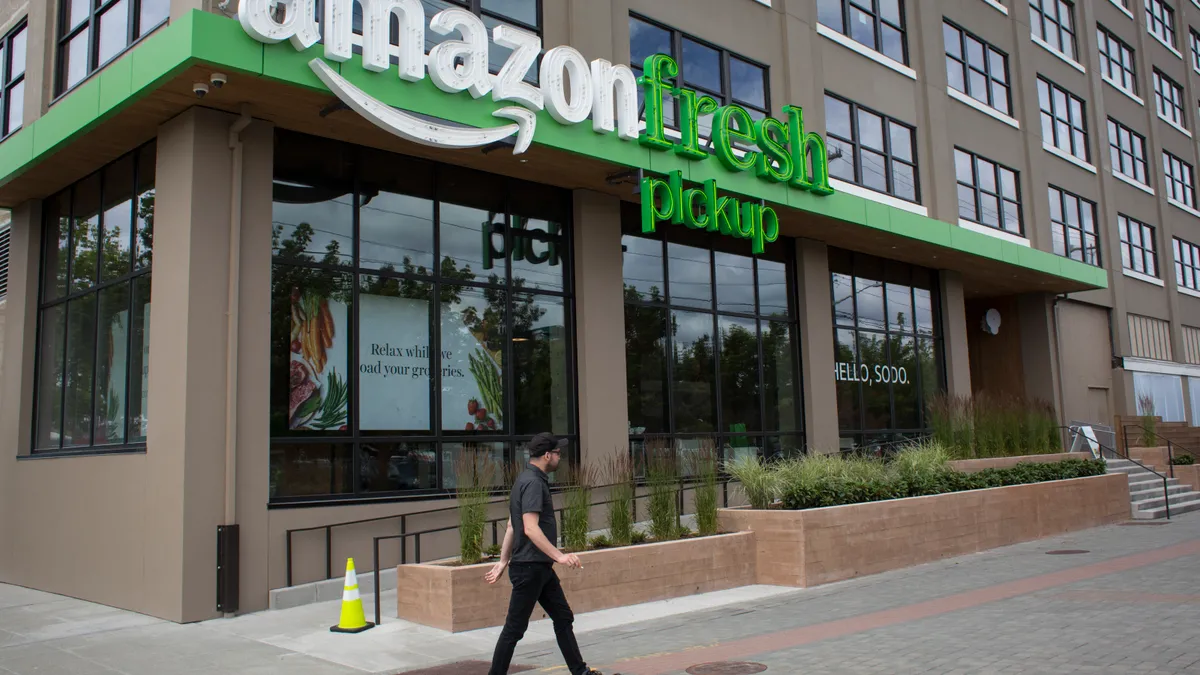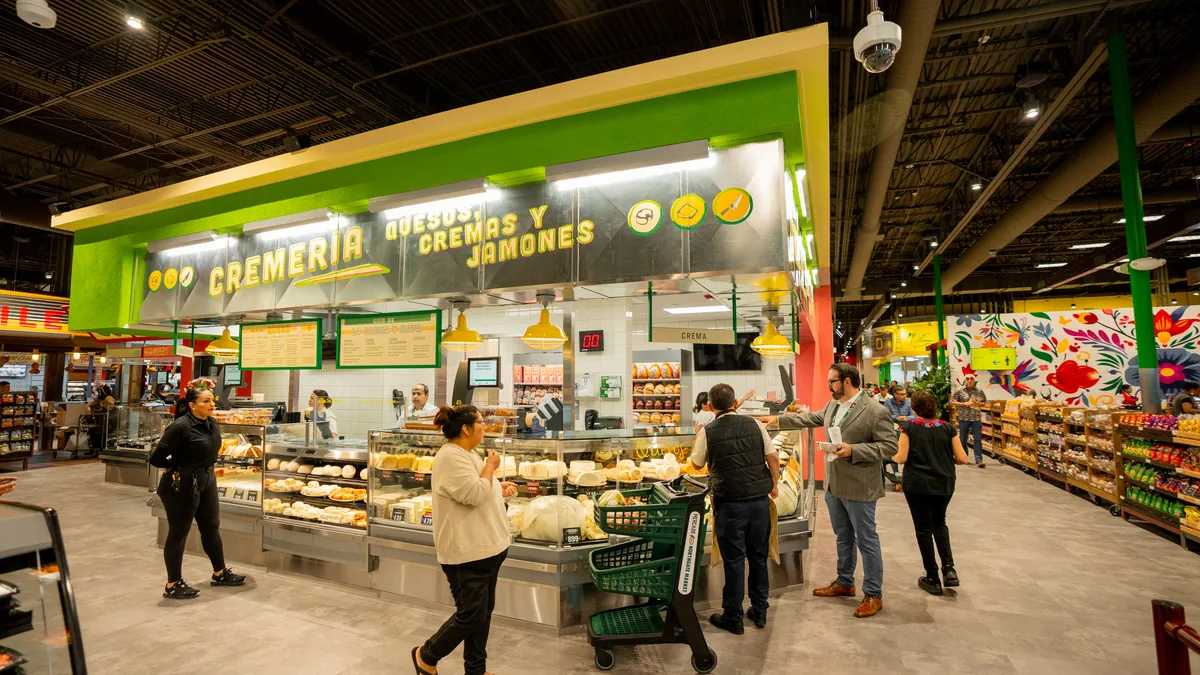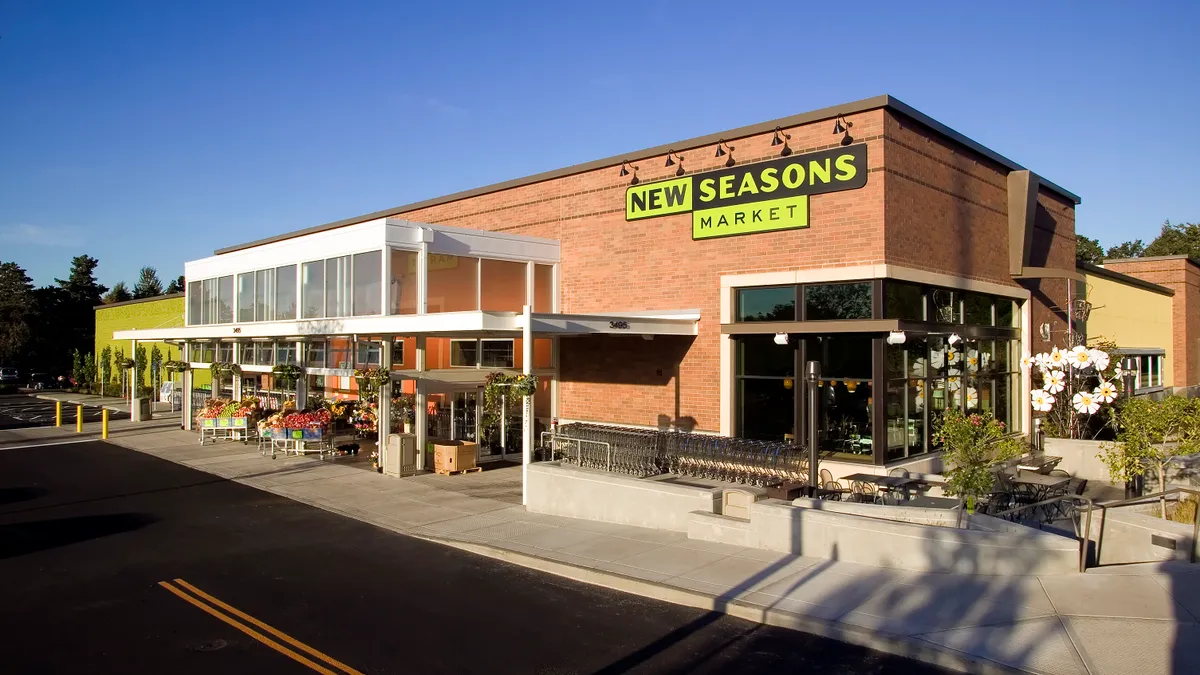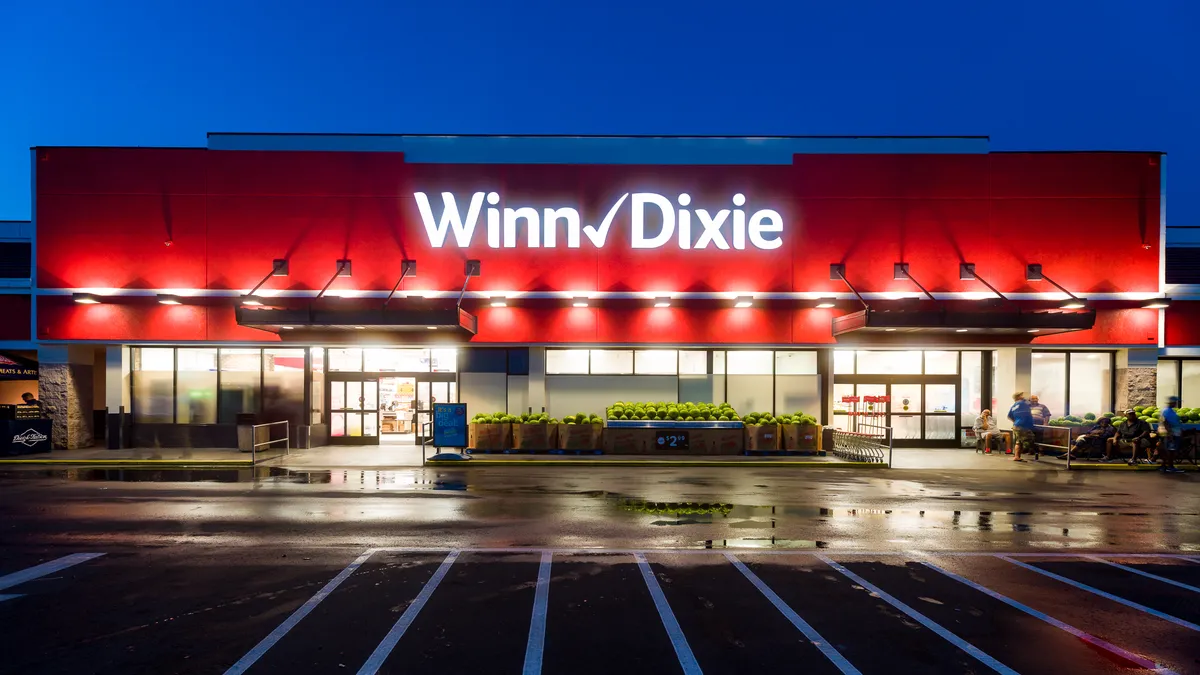As consumer values continue to evolve beyond price and convenience, grocers have raced to meet increasingly nuanced demand for healthy, environmentally sustainable and ethically created food. But as retailers invest in innovations for the consumer of today, questions remain about the food market of tomorrow.
At the Food Forward summit in Washington, D.C. last week, Sarah Smith, research director for the Institute For The Future's Food Futures Lab and Mike Lee, creator of The Future Market, forecast how grocery shoppers and stores may operate in the coming decades.
Experience is everything
"In 10 years, the term 'consumer' will be dead," Smith said at the event. "Eaters are more than just consumers at the end of the supply chain. They have agency, they are co-creators, they take a more active role in what is being produced and how."
Smith referred to this trend as the "maker movement." Future consumers, she said, will view food as a reflection of identity and personal food production will be seen as an empowering experience. This hands-on approach also stems from a desire to eat for resilience rather than traditional motivators like taste preference — consumers want to be confident their food is better for both their personal nutrition and the planet.
"Eaters are more than just consumers at the end of the supply chain. They have agency, they are co-creators, they take a more active role in what is being produced and how."

Sarah Smith
Research director at Food Futures Lab
In its Food Innovation: Recipes for the Future report, IFTF identified the rise of "weekend farmers" in India as evidence of this future trend. According to the report, working professionals in highly industrialized communities there often travel outside the city on weekends to tend organic farms. They are driven by "fears about industrialized farming practices and a desire to connect their children to the land." IFTF predicts that this behavior will become more popular as urban populations grow, something already evidenced by the growing popularity of rooftop gardens.
Smith said this consumer agency has also manifested itself in the rise of crowd-funded products, reflecting consumer investment in the items and brand missions that matter to them.
Lee predicted that as consumers seek a more hands-on, intimate understanding of their food, grocery stores will use new technology "to bring an experience to part of the grocery store where there wasn't one" — specifically, the produce section.
The Future Market developed a retail concept product called Produce Pro in anticipation of this trend. The two-way telepresence system connects grocery shoppers with nutritionists, chefs or farmers who could answer their produce questions at the push of a button. The experiential tech, which was piloted at a Brooklyn Whole Foods, aims to bring the type of person-to person interactions consumers get at farmers markets to brick-and-mortar chains, Lee said.
"We might pick up and pack produce right out of the aisle, and we could see [cell-cultured] meat being brewed the same way you see beer being brewed — all in the grocery store."

Mike Lee
Founder of The Future Market
Lee also said that in future grocery stores, shoppers will be able to pick their own produce from small vertical farming units located throughout the aisles.
"The grocery store isn't just a place where stuff is picked up anymore, it's a place where food is made and grown," Lee said. "We might pick up and pack produce right out of the aisle, and we could see [cell-cultured] meat being brewed the same way you see beer being brewed — all in the grocery store."
Full transparency — both on the label and in the body
Smith also said that consumers will continue to trend toward "informed consumption."
"Eaters want to know how their choices impact the bigger system," she said, referring to current points of concern such as soil resiliency, climate change and other forms of environmental degradation.
On the flip side, Smith said that consumers may also become experts on how various foods impact their personal immune systems. In its report, IFTF predicts that as consumers pursue transparency from the food industry, they will be "aided by technologies in, on and around their bodies... [that] let them precisely measure their dietary needs, metabolic reactions to foods and environments."
The nonprofit research organization forecasts that as consumers begin to purchase devices that analyze food at the molecular level, such as Nima Sensor's handheld gluten tester, they will begin to tailor their diets and the products they buy to meet their body's needs.
In its report, IFTF points to ingestible sensors being developed by biomedical engineers at Carnegie Melon as a signal of this emerging tech category. They predict that "eaters will adopt [the sensors] for an instant feedback loop about how food affects their bodies."
Lee said that future grocery stores will be equipped with digital resources to help shoppers quickly identify which products are best for them based on their nutritional needs or personal health goals.
"You can create a wealth of choice by customizing the products in the store to the consumer," he said.
"The marketplace of the future is about delivering food to consumers on their terms."
"You can create a wealth of choice by customizing the products in the store to the consumer."

Mike Lee
Founder of The Future Market
Lee said FoodID, a conceptual system from The Future Market, responds to this desire for hyper-personalization. Similar to a digital kiosk, the system creates a profile for grocery shoppers based on a questionnaire about their priorities — such as food that's low in calories or that's environmentally sustainable.
According to Lee's futurist food project, the system is "the end of one-size-fits-all food" and matches shoppers with in-store products that fit specific combinations of "health, price, sustainability and flavor values." This will give consumers a more targeted, convenient shopping experience.
Diverse market models
Lee said that one of the most defining characteristic of tomorrow's grocery store is already revolutionizing today's industry: diverse distribution.
Though the brick-and-mortar retail concept isn't going away, he said, desire for omnichannel grocery experiences and more convenient shopping options will drive the development of drone, robot and human courier delivery systems that cater to consumer preferences.
"Today's market is centralized. There is a physical market that you have to go to, and you have to shop on the grocery store's terms," he said. "That model is going to shatter into a bunch of little pieces, and your market is going to come to you in different ways."



